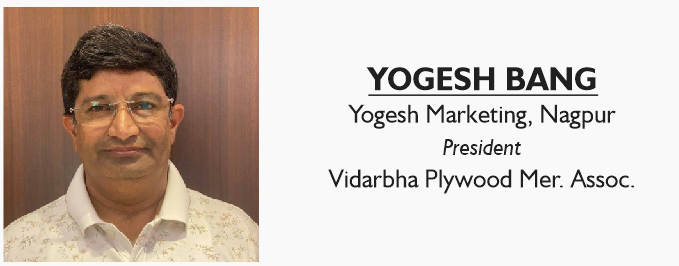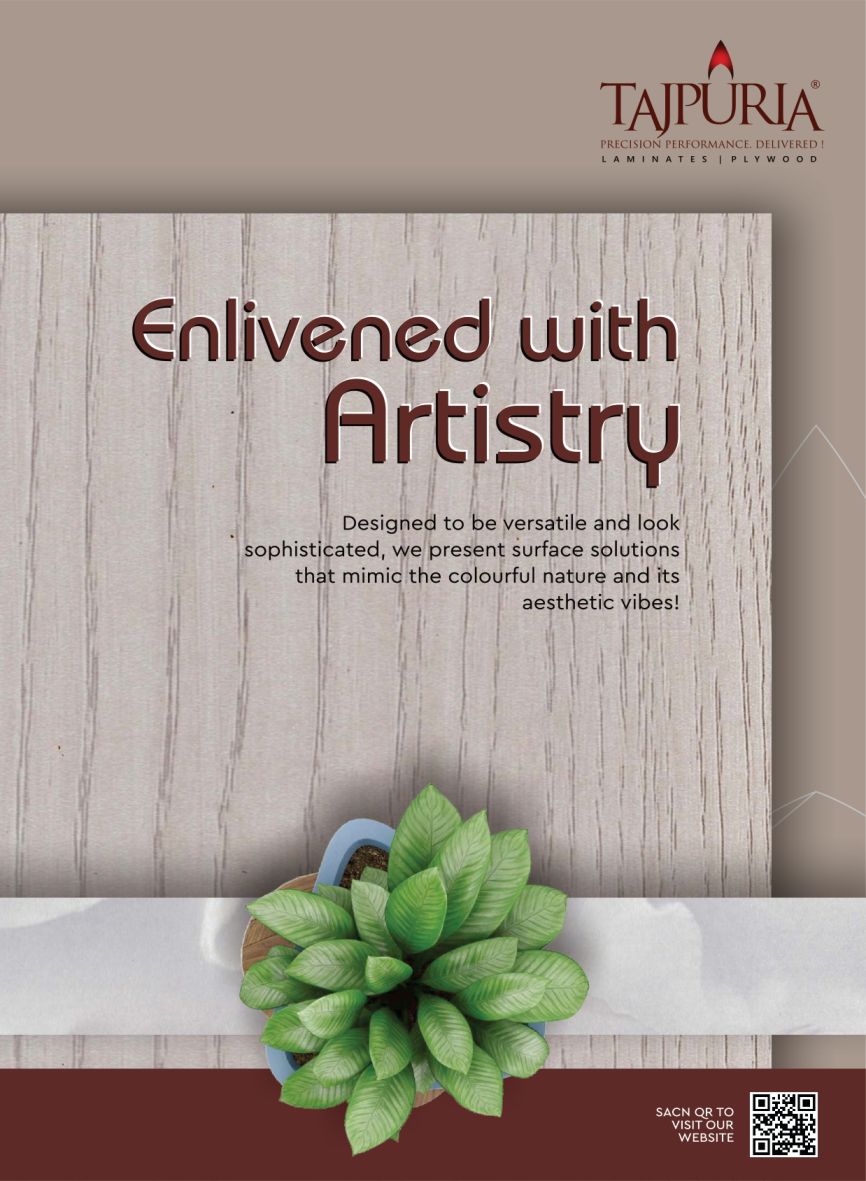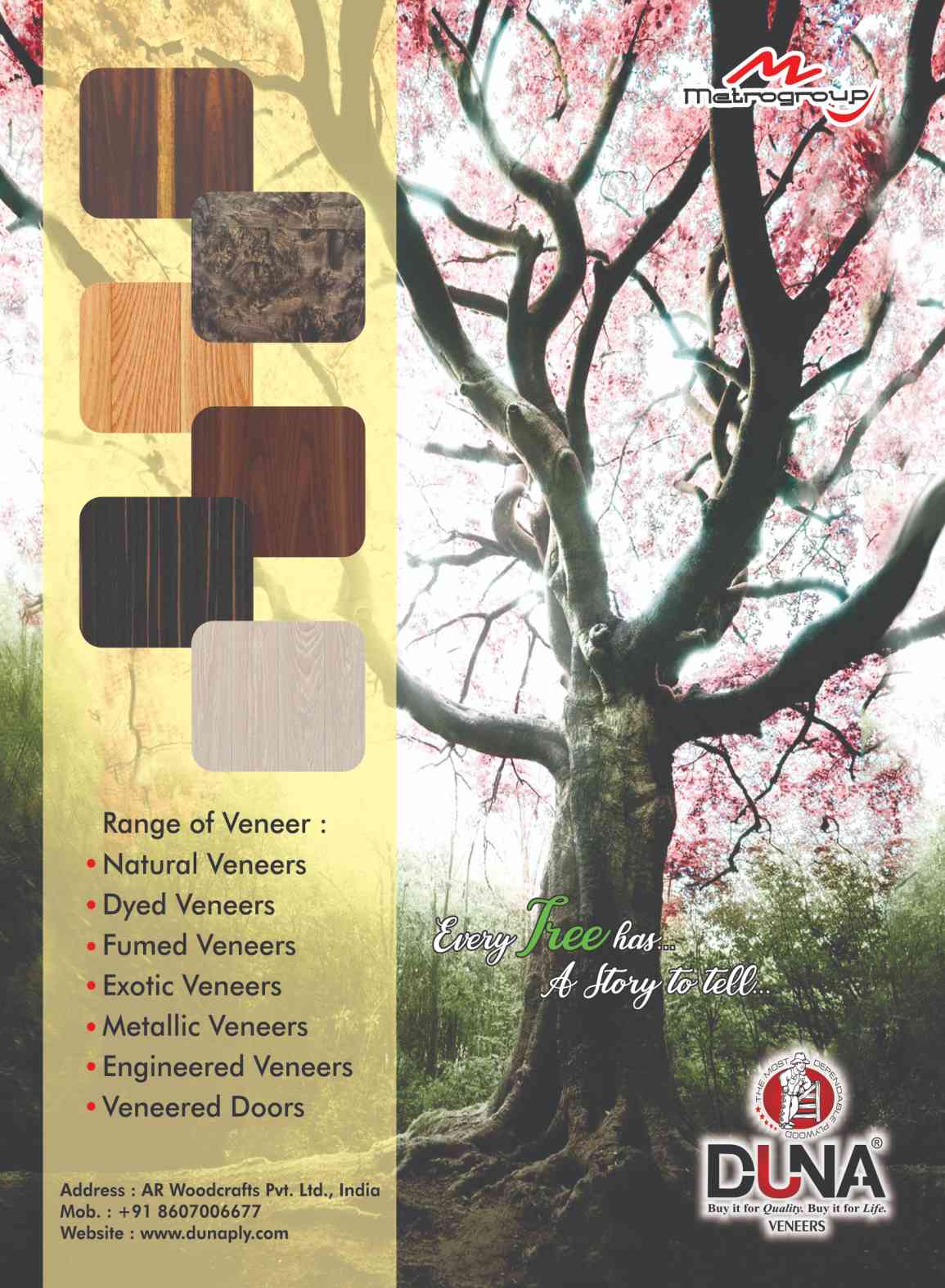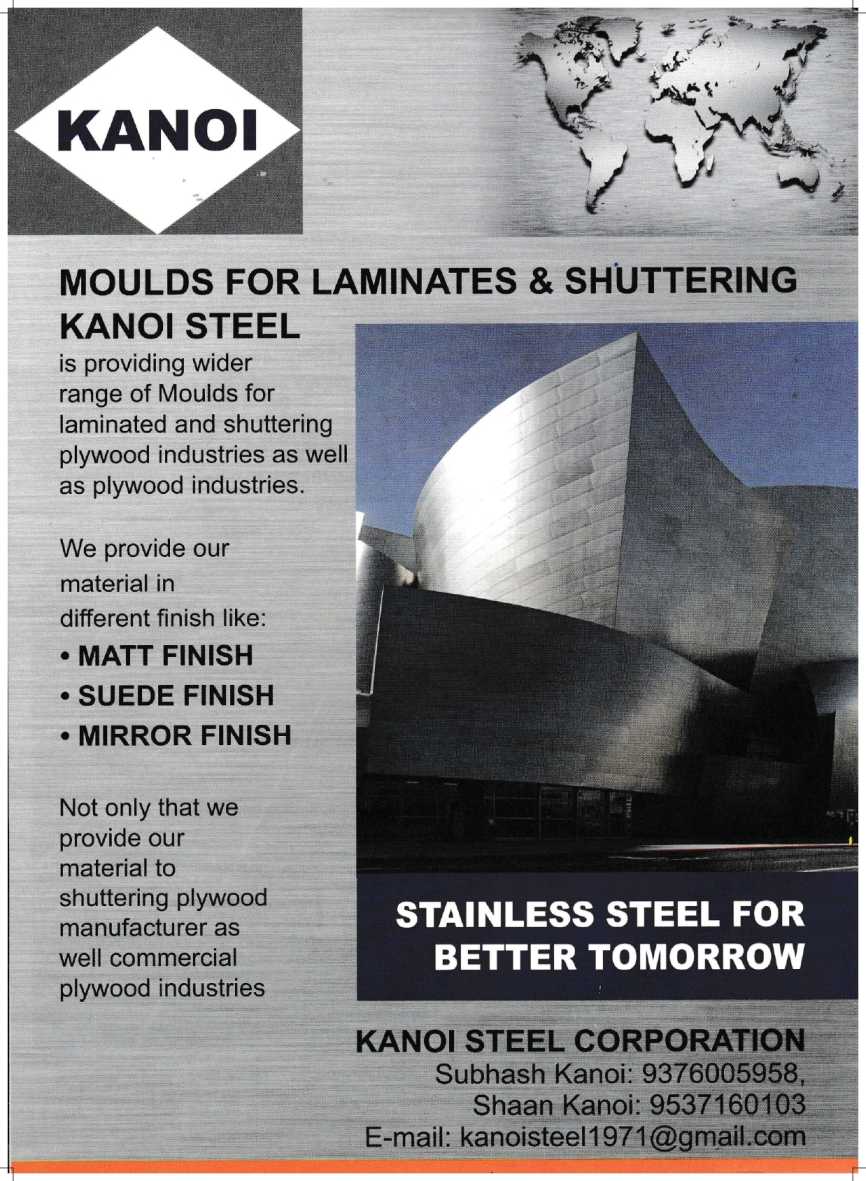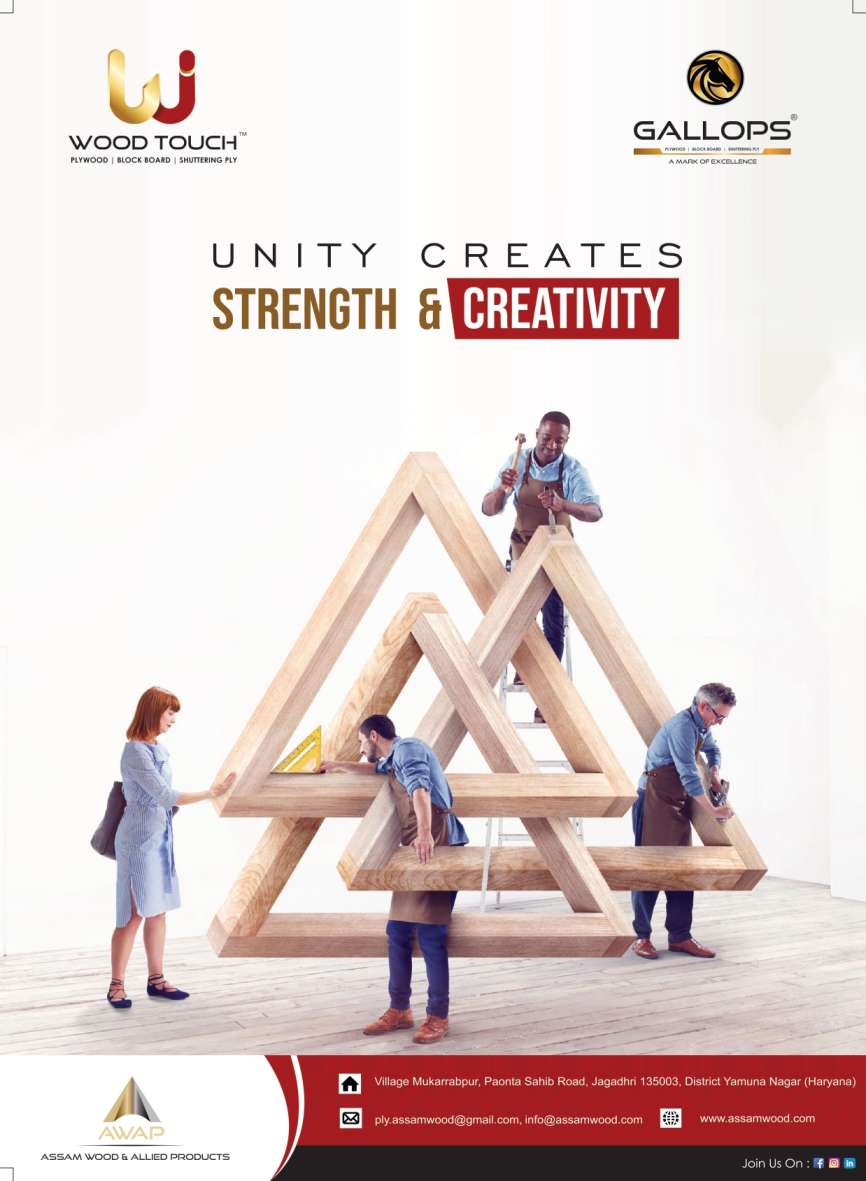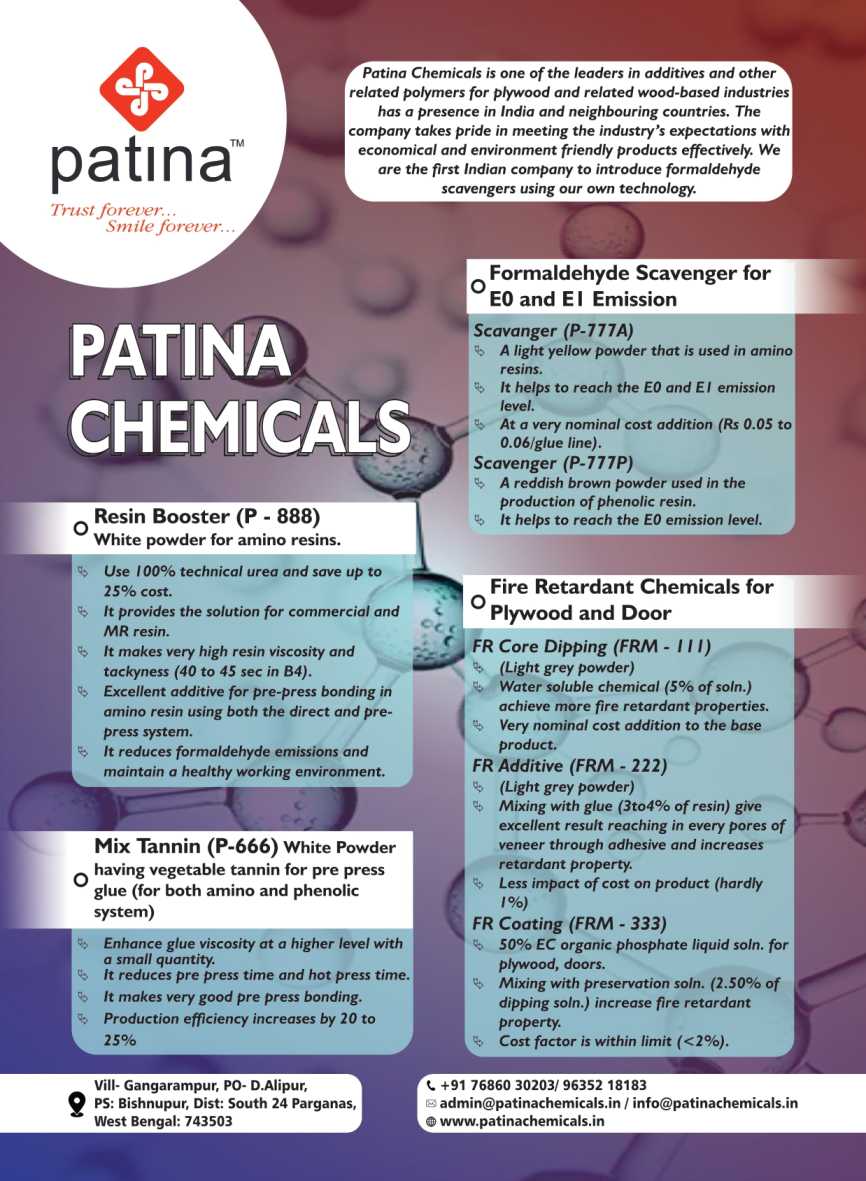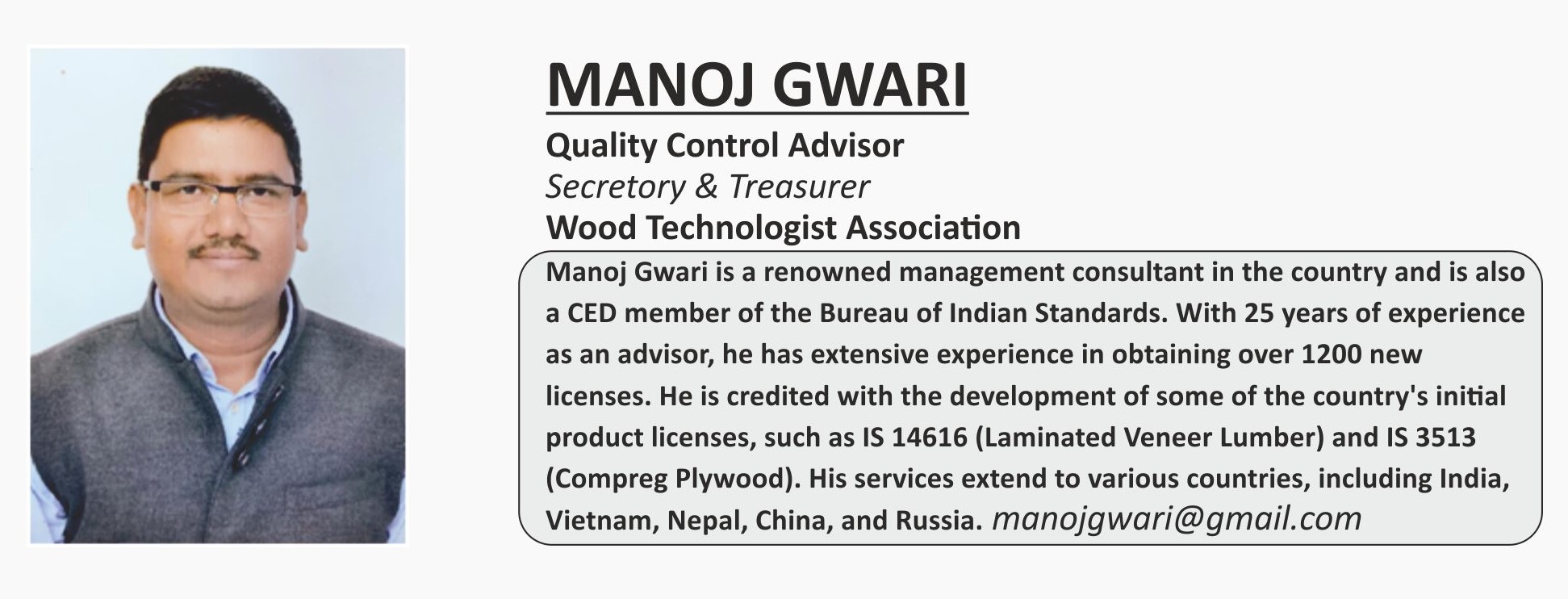
BIS standards may seem a bit challenging, but they are ultimately beneficial to the wood industry
- November 20, 2023
- 0
What are your views on the concerns of industrialists regarding mandatory BIS standards?
The Bureau of Indian Standards (BIS) actually formulates quality standards for any product in the Indian market. As we know that, BIS is now on its way to enforce all applicable Indian standards in the wood industry as well. The government’s increasing vigilance over standards is unprecedented. In my estimation, the government’s intention behind this is to restrict imports and promote indigenous producers. While this is a commendable step at its core, it is also a matter of concern for our wood-based industries. It is a matter of fact, that the Indian wood-based industry is still scaling largely as small enterprises, and they will need time to gather resources to implement all kinds of specifications within their units. According to the notifications provided by the government, compliance to these standards will be effective by February/May 2024.
There are some products for which standards are currently silent?
There is currently uncertainty regarding standards for waste recycling. Every product in wood based industries is made of agro-based wood, and different products are manufactured based on the quality and grading of the various species of timber. During the manufacturing of these products, several products are manufactured from the leftover materials for maximum utilization of the available resources, which are not yet included in the Indian standards. This is a matter of concern because when we will finally adopt the available standards, we won’t be able to manufacture these products in our industry.
What is to be done for it?
This issue should be presented to the BIS by the Plywood Associations of India to integrate all types of products into the available standards. Bureau of Indian Standards has released a new version of IS 2202 (part 1) in 2023, after getting approval of industry and CED member, which now includes MR grade, in addition to the doors that were originally allowed to be made from BWP resin only. But, there is no mention of any other sub-products of doors in it. The same situation is for block boards, the sub-products of which are not mentioned in the BIS standards. Changes in any product standards will require the industry to present its case in BIS – CED meeting, only then a solution will be ascertained.
When and who represents the BIS – CED meetings?
To address such issues and to connect with the industry, a committee has been formed by the Bureau of Indian Standards. Since this concerns civil engineering, the Civil Engineering Department (CED) was formed, and it encompasses almost all types of wood products in its CED-20 committee. This committee consists of about 35 members, including BIS, Wood Research Institute, CPWD, Wood Association and industry representatives. Typically, the committee holds meetings once a year to discuss various topics related to standards. Any changes in the trade during the year are also considered in these meetings so that specifications can be modified, ensuring harmony between the industry and the standards.
The date, location, and agenda of the meeting is prescribed in advance, and all members are informed about it through available means to ensure maximum participation. During the meeting, all member can provide their input on the proposed agenda items. Proposals that receive unanimous approval are considered for implementation by BIS.
The industry is also informed about this. The problem is that the industry either does not pay attention to this process for any reason, or cannot register its strong presence. The relatively low number of industrialists on the committee may be one reason, while experts from other fields are more involved in it. It is seen that either the industry don’t participate in the meeting at all, or they do not provide any suggestions from their end. If suggestions from industrialists are received from time to time, then, certainly, the Bureau of Indian Standards (BIS) will have to consider its future strategy on those suggestions.
BIS standards are so stringent or outdated that industrialists are finding it challenging to comply with them?
The objective of BIS is to establish product standards in consultation with industrialists. BIS standards are developed in consultation with industrialists. But industrialists also have to come forward and share their grievances with BIS officials so that solutions can be found for every issue.
BIS has outsourced inspection work to private agencies?
Recently, BIS has included some well-known companies in its inspection wing. Primarily, their job is to conduct annual or bi-annual inspections in companies approved by the Bureau or a licensee when ever Bureau advises. Compliance with product standards is ensured in every inspection. In cases of non-compliance, the effected industry is provided an opportunity to rectify deficiencies within a specified time by the BIS. While this is a standard practice, the lack of knowledge about BIS rules and product standards, sometimes this process turns cumbersome and inconvenient for industrialists. To avoid this, industrialists should appoint a qualified Quality Control In charge (QCI) who can update the unit with changes in standards and ensure compliance with all regulations.
Benefits of hiring specialized consultants for industrialists?
If an industrialist takes the services of a specialized consultant (QCI), his work becomes much more manageable. Because an expert consultant can fulfill every BIS’s formalities. He will update the industry with the latest formalities in BIS standards and achieve the implementation of standards smoothly with the industry team.



